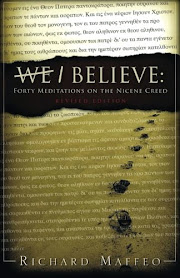I awoke at two in the morning last evening, thinking again (as I too often do) about the events surrounding Nancy’s stroke on January 19th of this year. I tried pushing that memory from my consciousness. I don’t like reminding myself of my spiritual failures during those interminable weeks in the ICU.
Everything I’d ever taught or preached about trusting God in the midst of utter fears and doubts – everything I’d taught dissipated like a match flame in a hurricane.
Last night, though, God let me see those events from a different angle. A different perspective. Perhaps He awakened me because of the Bible study I plan to bring later this week to the men and women living in a nearby memory center. Each of the twenty or so who attend the study are in varying stages of memory loss. The youngest is in his mid-sixties. The oldest, in her seventies. Sometimes their spouses join my study.
As I prepared that afternoon for our discussion of the ‘Heroes of Faith’ in Hebrews 11, a recurring thought troubled me. How could I speak to what surely must be their own angers and confusions and doubts about God’s love for them. Surely, they wonder why He has not answered their desperate prayers for healing of their minds and a return to what used to be a normal life with their spouse and families.
I have no answers to why God heals some and not others. I have no answers to why God remains silent, sometimes for a lifetime, to our prayers.
And God spoke to me. His word was not audible, but my mind heard Him as clearly as my ears would have: “Richard” He said. “It’s okay to be human.”
I stopped tossing and turning and replayed His comment. “It’s okay to be human.”
“What does that mean, Lord?”
Scripture drifted across my thoughts: “O Lord, You have searched me and known me. You know when I sit down and when I rise up; You understand my thought from afar . . . and are intimately acquainted with all my ways. Even before there is a word on my tongue, behold, O Lord, You know it all.” (Psalm 139:1-4).
And then this text: “He Himself knows our frame; He is mindful that we are but dust.” (Psalm 103:14)
God not only knows we’re human, full of frailties and failures, but He also says it’s okay to be human. It’s okay because that’s who God created us to be. He knows precisely who and what we are. And He is okay with that – even though we are fraught with failures and so forth.
“We are only human.”
That’s how I have always counseled others living with their own Peter-esque embarrassment about their spiritual failures.
And now, at two in the morning, I needed yet again the same counsel: It’s okay to be human, to be angry at God, to be frustrated, frightened, confused, and disillusioned. It’s okay to wonder if any of our prayers are getting God’s attention. It’s okay to have all those tumultuous emotions.
But what do we DO with those emotions after we’ve vented our wounded hearts? That’s the question the residents at the memory center and their families – and you and I – must answer. And our answer must include this decision: “Be careful to not let a root of bitterness creep in and set down roots.” (see Hebrews 12:15)
To the surprise of some who read for the first time of the giants of faith cited in Hebrews 11, many of those heroes “died in faith, without receiving the promises.” (Verse 13).
Scripture calls them heroes because they did not allow that root of bitterness to despoil them. Instead, they did with God’s help what you and I can and must do with God’s help after venting and crying and mourning: See His promises with eyes of trusting faith, welcome them from a distance, and confess to God that we are strangers and exiles on earth. (Verse 13)
It’s okay to be human. It’s how God created us. And though we don’t like to fail, especially when we fail God, He knows failure is part of our humanity – even as Peter's humanity caused him to miserably fail.
But then it’s time to do as Peter did after meeting the risen Lord: Get up and get on with the work God has called each of us to do: Trust Him, even when our natural mind screams out against such trust.
I go back to Calvary. Always to Calvary. Since God loves us that much, can we reasonably not trust Him to always do what is right and good in our every circumstance – even if we die in faith, never having received in this life the answers to our prayers?

